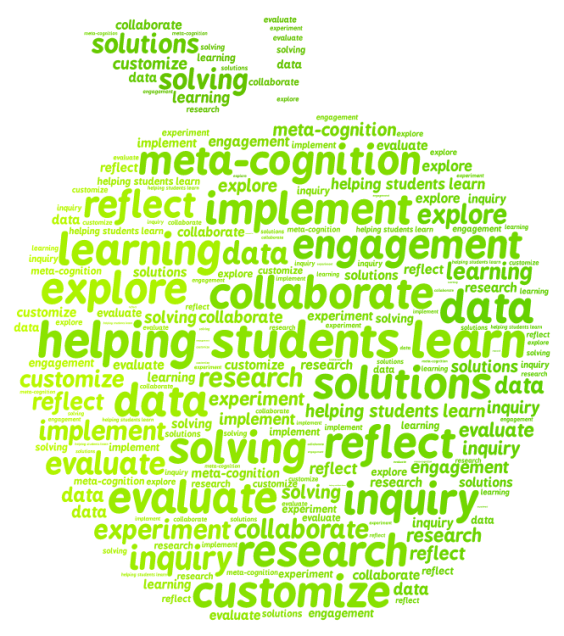
Inquiry learning is a concept I encountered blindly when beginning this course. I had a goal to learn more about it and how to apply it in my classroom, of course, but for the most part I’d been under the impression, even until this week, that inquiry learning is all about what I’m able to get my students to accomplish. I was so focused on this process by which I could get my students to take control of their learning that I failed to see that truly, inquiry learning starts with me! Inquiry learning truly is a process, and preparing for that process is just as important as implementing it. In her article titled “Five Roles of the Inquiry Teacher,” Shelley Wright describes some the of the hiccups involved in the inquiry-based classroom and how important the teacher’s role is in helping students to overcome those issues. In preparing for this, I’ve learned that I must prepare by asking myself, “What difficulties and questions might students have with this?” and try to prepare solutions for these issues should they arrive. However, I can’t very-well give them the solutions, can I? Not with inquiry learning! Therefore, I must also prepare to help students find those solutions. This in itself embodies the definition of inquiry-based learning.
PART 2:
I currently teach 9th grade literature. For my mini-lessons, I plan to explore a concept I teach in my first unit of the year, “The Stages of the Hero’s Journey.” I normally teach the stages and assign a very specific project in which students use a chosen movie to demonstrate their understanding of the stages. However, I’d like to explore ways for students to “discover” these stages and demonstrate their understanding in a new way. I will give more opportunities for the use of technology in not only research, but also in presentation. Perhaps they will even make their own movies to demonstrate the stages!
Great response to this week’s topic! I agree that inquiry based education requires teachers to be prepared for assisting our students but ultimately focuses on the ability of students to find the answers for themselves. I loved the Ted Talk we watched this week because Laufenberg embodied the teacher I would like to be that allows her students to find the information instead of being the giver/keeper of the information.
LikeLike
I would love to be aa student in your class for this lesson. I think it takes guts to take something you are used to doing a certain way and changing. This is a very nice mind set to have and shows you will not be one of those teachers who gets “stale” in their teaching. Good luck!
LikeLike
Hi! I understand how it can be challenging to look at the goal of inquiry learning in terms of student accomplishment rather than engagement and thought and the other factors. Could that stem from the need to assess them, and if they need to be assessed then they must accomplish something in order for that to happen?
I’m interested to know about “The Stages of a Hero’s Journey.” Which area of literature is 9th grade focused on? Is it mythology?
LikeLike
I agree that there is a constant need for assessment, or so we think. Especially in public schools, we are drilled so much with the need for test scores and data, we tend to leave little room to actually see what the students can do rather than how far they’ve progressed on our data charts.
We do The Hero’s Journey as our first unit of the year when we read The Odyssey. We study a lot of Greek Mythology as well as the typical “hero” and what stages he/she normally goes through on their journey to success. When students learn this process they are able to dig a little deeper into other pieces of literature involving a hero or similar main character.
LikeLike